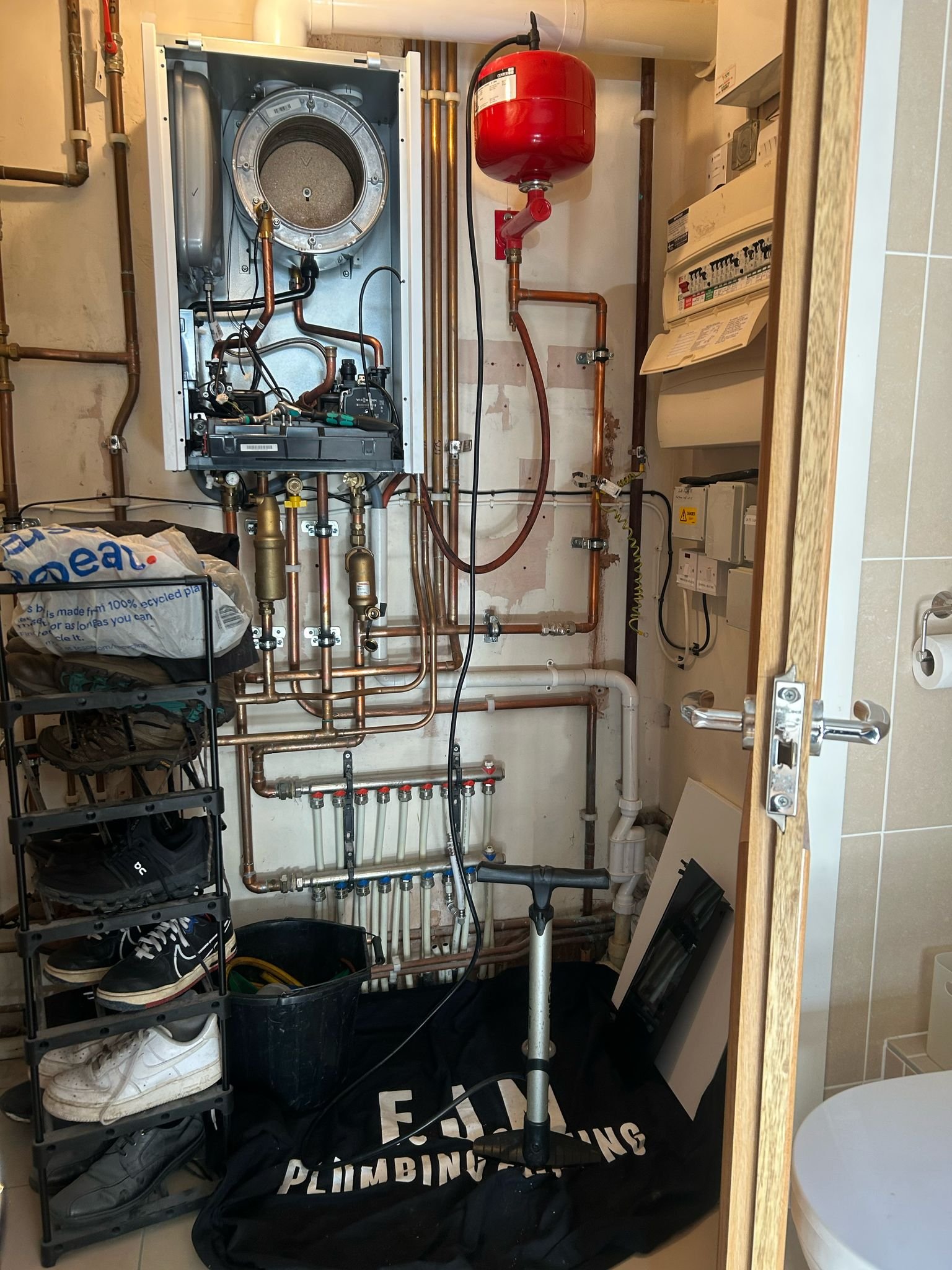The Real Reasons You Should Service Your Boiler Every Year
When was your last boiler service? For some homeowners, the answer is surprising: never. And that can result in serious complications. While missing your annual servicing might seem harmless, it can put your entire heating system at risk. It’s an easy task to delay with homeowners pushing it back year after year, yet it's something that plays a vital part in keeping your home safe, warm, and energy efficient.
According to MoneySuperMarket, 22% of UK households skip their yearly boiler service. Considering the impact on safety, performance, and even home insurance, that’s a notably high percentage. So, if the advantages of consistent servicing are clear, why are so many still putting it off?
Why Do People Overlook Boiler Services?
The cost of boiler maintenance is sometimes perceived as an avoidable fee, especially when other household expenses take priority. But ignoring these routine assessments can trigger far greater outlay in parts, replacements, and utility bills down the line. With a typical service priced at around £150 and new boilers averaging close to £4,000, it’s a classic case of prevention over cure.
The problem also lies with bad experiences. Trust can quickly break down when individuals are left underwhelmed by rushed appointments or unclear processes. Comments like: “They were in and out in 20 minutes,” or “All they did was remove the cover, put it back on, and stick their machine in the pipe outside,” and “I haven’t seen anyone do as much as you have,” are all too common.
Some homes dismiss boiler servicing purely because they’ve never been shown what a thorough visit actually entails. And that’s a concern. If you’ve never been shown what a proper boiler service involves, it’s easy to feel like it wasn’t worth the money – or worse, that nothing was done at all. That’s why it’s important to understand what’s included in a standard check-up.
Boiler Service Checklist
At a minimum, a full boiler service should encompass a comprehensive internal clean. We always strip the boiler down and clean it thoroughly, and it’s essential to confirm that your engineer does the same. This involves removing the burners and cleaning the main heat exchanger, electrodes, air filter, condensate trap, and any magnetic system filters.
Another key procedure that’s frequently overlooked is the pressurisation of expansion vessels on sealed systems and combination boilers. We regularly come across instances where this hasn’t been carried out at all. Yet it serves such a key role in how well your boiler operates day to day.
Once those steps are complete, we fire up the heating, inspect radiators, airing cupboards and loft tanks, and carry out a full range of safety tests to make sure everything is performing as expected.
Fred’s Thoughts: Inspections can vary depending on the manufacturer. But surprisingly, some brands even get it wrong. In many cases, the tolerances they set for safety readings are too wide for their own appliances, and that can lead to financially draining, or even irreversible, damage.
The Hidden Boiler Service Checks That Could Save You Money on Your Heating
While basic boiler inspections act as an investment to the health of your heating systems – by spotting faults early and keeping systems operating smoothly – we go even further. By default, our boiler services include extra steps that offer even more value for money, and they’re things the vast majority of engineers simply don’t do.
At FJM, we:
1. Ensure the boiler output is optimised to suit your home's needs
In our experience, over 90% of the boilers we service for the first time aren't only oversized for the property they heat, but they're also left at peak output. That's a staggering number and a county-wide issue. Not only does this make the appliance less efficient and pricier to run, but alarmingly, it also increases wear and tear and upkeep costs. Therefore, we’ll always assess and adjust this as necessary.
Fred’s Thoughts: Typically, when returning the following year, customers will often tell us how their gas usage has dropped substantially.
2. Check pump speeds
Similarly, heat pumps are commonly left functioning at their highest speed despite being unnecessary in a large proportion of properties. To put that into perspective, some pumps consume up to 45 watts per hour on their maximum setting, while the lowest mode uses as little as 5 watts. And it’s not just about energy use. When a pump runs too fast, the boiler works harder to keep up with the water flow, which puts excessive strain on the network. By dialling down the speed, the boiler output naturally reduces, saving energy, easing wear, and enhancing long-term efficiency.
3. Leave Clients Informed
It’s a simple step, but it makes a big difference. Without fail, we take the time to talk customers through what we’ve done, why we’ve done it, and what it means for the functionality of their system. We’ll provide tailored advice on how to maximise efficiency, too.
By taking these straightforward yet value-added measures, our clients benefit in several ways, including:
Safety: Ensuring your appliance is safe for you and your family
Prevention: Catching potential issues early so they can be resolved before turning into costly remedial work or, in the worst-case scenario, requiring a brand-new boiler
Performance: Improving system capability by choosing an engineer who knows how to optimise output and reduce energy waste.
Why Do I Need to Get My Boiler Serviced?
There are tangible benefits to booking regular boiler services. Lower bills, reduced consumption, and fewer unexpected repairs are just some of the gains that come from staying on top of maintenance. And with FJM, you’re protected beyond the basics with our additional checks, helping confirm your system runs exactly when it matters – all while minimising the threat of expensive breakdowns.
To find out more about our boiler services, get in touch today.



